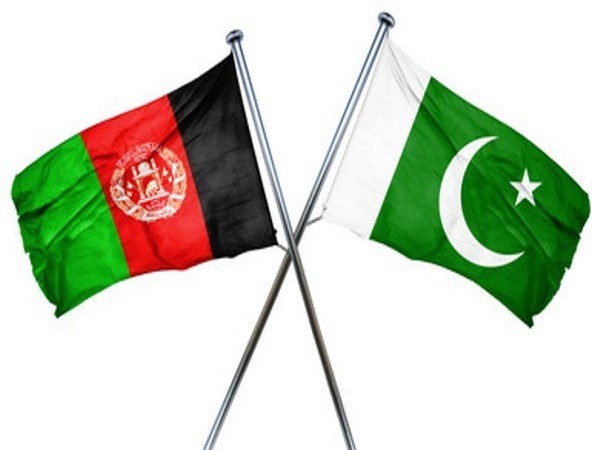US withdrawing troops from Afghanistan a reward for Pakistan, says Afghan politician
The cutting of US troops from Afghanistan by the outgoing President Donald Trump's administration further rewards the Pakistani military's nurturing of extremist groups, said a former Afghan head of the National Directorate of Security.

- Country:
- United States
The cutting of US troops from Afghanistan by the outgoing President Donald Trump's administration further rewards the Pakistani military's nurturing of extremist groups, said a former Afghan head of the National Directorate of Security. Rahmatullah Nabil is an Afghan politician and former head of the National Directorate of Security in Afghanistan, the country's main intelligence agency, in an article for Newsweek wrote that peace and stability will occur neither via Islamabad nor via the Taliban's Quetta Shura.
"For the past 20 years, Pakistan has skillfully played both sides in the war on terror, during both Republican and Democratic administrations. It is in Pakistan's interest to maintain forward progress for the U.S.-Taliban deal in Doha, despite the flaws of the deal," he wrote. The 2019 Afghan presidential candidate said that the Doha-based Taliban negotiators have become disconnected from the Taliban field commander and military leaders and added that it is 'highly unlikely' that these Taliban negotiators will be able to deliver on any long-term commitment to significantly reduce violence or maintain a ceasefire.
"And while Afghanistan is no stranger to tragedy, the cutting of U.S. troops by the Trump Administration does not help the situation. It comes at an inopportune time, during a very crucial and tenuous stage in Afghanistan," Nabil wrote for Newsweek. "The country is likely at a tipping point. Unfortunately, the troop reductions appear not to be rooted in any military assessment but rather based on political partisanship. It will, among other things, embolden the Taliban to give less effort towards any progress at the negotiation table. In addition, the troop reduction further rewards the Pakistani military's nurturing of extremist groups that play a key role in destabilizing the region in accordance with Pakistan's geo-strategic aims," the Afghan politician wrote further.
As a result of Pakistan's double game in the region, several trends can be expected over the coming months, he wrote further. "With Pakistan's approval, the Taliban (though perhaps not publicly) as a tactical step may declare that they are cutting their ties with Al-Qaeda. The Pakistani army or the Taliban may even share actionable intelligence with the US," he said.
Nabil stated that a few high-ranking Al-Qaeda members might be killed or captured inside Afghanistan. "Pakistan's activities may even lead U.S. officials to believe that Pakistan has now become a reliable counterterrorism partner in the region and thus should be given a greater say on U.S.-Afghan policy," he wrote and added that by the time the new administration in Washington sees through the "double game", crucial time will have elapsed and crucial U.S. leverage over Pakistan will have disappeared. He pointed out that if things continue the way they are, the conflict in Afghanistan will continue, Pakistan will have an even bigger veto on internal Afghan matters and Afghanistan will be dragged into an even deeper cycle of conflict.
"This conflict will likely play out in a Syria-like proxy war that will involve the Taliban, Afghan Security Forces, ISIS-K and numerous terror groups," he stated. He concluded that The US 'legacy' in Afghanistan need not be the mirror of the Soviet Union's. Actively subcontracting the future of Afghanistan to Pakistan is a recipe for further disaster, as is empowering the Taliban to return and seek to resurrect their Islamic Emirate.
Earlier, Australian professor William Maley said that peace and security will not come to Afghanistan until the issue of Pakistan's relentless disposition to meddle in Afghanistan's affairs is properly addressed. "A key issue to pursue -- the real elephant in the room - remains the critical support that the Afghan Taliban receive from Pakistan and specifically from the Pakistan military," Maley said.
This comes after a series of videos surfaced showing senior Taliban leaders meeting their followers and Taliban fighters in Pakistan. Pakistan is using the Taliban as a "tool" for its dominance in Afghanistan under the pretext of strategic depth, said former Pakistan senator Afrasiab Khattak, adding that the terror group's approach towards the peace process has remained unchanged as it favours violence in the country. (ANI)
(This story has not been edited by Devdiscourse staff and is auto-generated from a syndicated feed.)
ALSO READ
Trump hush money charges seen as serious by most voters, Reuters/Ipsos finds
Trump ex-deputy Weisselberg to be sentenced over perjury plea
Biden holds 4 point lead over Trump, Reuters/Ipsos poll shows
Trump says Arizona's abortion ban goes too far and defends the overturning of Roe v. Wade
US House blocks domestic surveillance bill after Trump's opposition










